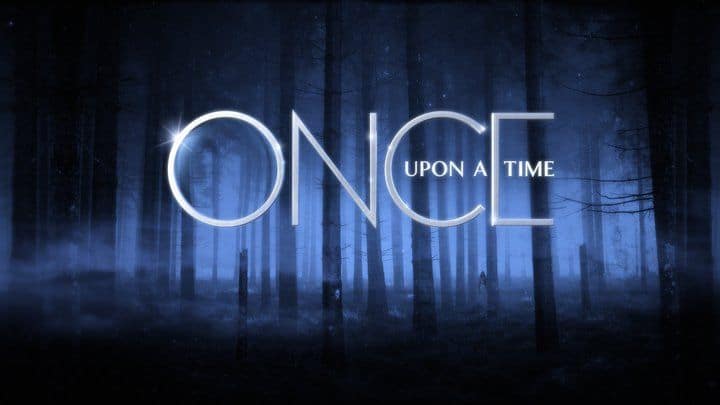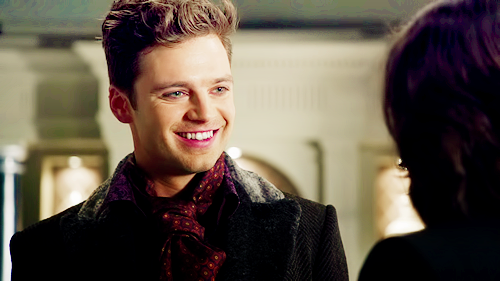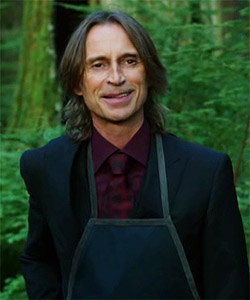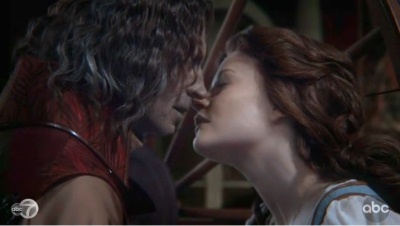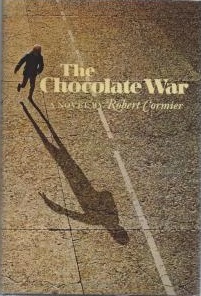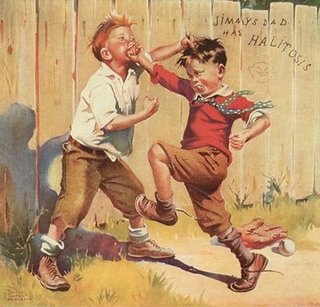I just finished reading Robin McKinley's
Sunshine for the fifth or sixth time. Every time I reread it it pulls me right back in, even though by now I know exactly what's coming--there are no more surprises left. Nevertheless, from about the point where Constantine reappears for a second time, I am sucked into the sort of trance that leads to extremely late nights and ditched commitments. Part of it is the joy of experiencing (at least somewhat vicariously) a new and different world. It is that sort of book I find myself constantly coming back to, and, I think, a major part of my love of fantasy and science fiction - genres whose entire heart and soul rest upon world-building. But even the more mundane worlds will do--the vivid charming, and scatterbrained world of Anne Shirley, or the beautiful, treacherous, moralistic world of Elnora Comstock; Victor Hugo's Paris, or Charles Dickens' London; all my favorite books share an ability to engross me in their worlds and call me back if I've stayed away too long. In books I am able to enter the minds and experiences of the characters. I can see through multiple perspectives and feel with multiple selves -- a feat I have yet to achieve in reality, though certainly not through lack of trying. Literature grants me one of my dearest wishes - to get inside the heads of those I care about and to understand what they're thinking. Sure, the people I'm caring about in these instances are fictional characters, but try telling me that in the moment. Anyone who's fallen in love with Colonel Brandon, or Elnora Comstock, or Jean Valjean knows that their persistent lack of corporeal form certainly makes them no less real to us. It simply makes loving them more painful. A relative or a friend who passes away at least did exist once and you have your memories and your physical connections to them. A character in a story might be said to live forever, but not in the way that matters to the grieving reader who just finished the book. That character became a real, complete person in your head who, upon closing that back cover, you're forced to give up; to deny; to remember he or she is merely a figment of your (and the author's) imagination. And as the prolific existence of sequels and fan fiction tell us, it is a hard and painful loss. Anyone who has gotten lost in a story knows, just a little I think, the disorientation and pain a schizophrenic might feel upon being told that his delusions were the product of his mind alone.
It is that sort of immersive experience that keeps me coming back to
Sunshine. Even knowing how it all works out and exactly what's going to happen, I still get
invested in it. I care about Sunshine and Constantine. Not just care about--I feel like I know them. Even a character so carefully framed to be alien as Con. The story may be written from Sunshine's point of view and Con may be an impenetrable enigma to her, but to me he makes perfect sense. This is what I mean when I say that a character is created out of both the author's and the reader's imaginations. And this is the inverse blessing of fiction; if a character never truly existed then the way he or she exists in your head truly
is who they are. No matter how much detail and how many specifics the author give you in the story (and no matter how completely formed that character is in the author's mind) the fact is that there can never be enough detail in a book or poem or song or movie to tell you who that person is. Not completely. You, the audience, are given the outlines, like the empty lines in a coloring book, and then you fill in the rest. You supply the details, emotions, and motivations that make that character so very real to you. Thus, he or she becomes at least partly yours. My Colonel Brandon, my Frodo, or my Constantine are unique from those of my roommates, my mother, my best friend, and the author. These characters are made up of me, of what I put in them. And, as my own personal ethereal literary friends, they are just as...accurate as my roommates', mother's, friend's, and the author's versions -- because none of them were ever real to begin with. There is a particular empathy that avid readers possess - the ability to invest life and reality into fictional people - and I wonder if it is a lack of that ability, that empathy, that divides the non-readers from our ranks?
It was not, however, this investment of personal reality into fiction that most occupied me during this most recent reading of
Sunshine. Rather it was a heightened awareness, a running analysis even, of the actual mechanics of McKinley's writing. How was she telling this story? In stereotypically girly fashion, one of my favorite aspects of this story is the tantalizing hints of romance between Sunshine and Constantine. (We're not talking Edward and Bella here - one of McKinley's greatest strengths as a storyteller is her sense of subtlety and implication) But I realized, somewhat to my surprise, that McKinley manages something truly amazing in her story; she makes me either forget or simply not care about the implications of that relationship in terms of the consequences to Sunshine's relationship with Mel, a relationship that I am certainly invested in, even if it is not quite to the extent of my investment in her and Constantine. Those of you who know me or have read this blog know my opinions on infidelity and that "strong" hardly begins to do them justice. So my lack of concern over this implied potential infidelity all these years fascinated me. How had McKinley managed to completely subvert my attention from a theme I am usually so very attentive to? So I read with heightened attention to the structure of the story itself. I discovered that I, as the reader, didn't consider the issue because it is never alluded to as such in the book, either by the narrator herself or simply by the structure of her world. There is, at one point, a narrowly averted sexual encounter between the two (Sunshine and Constantine), and while Sunshine does spend exhaustive amounts of time analyzing the morality of that event and her entire relationship with Con, the conflict comes from the fact that she, as a human, is choosing to consort with him, a vampire. Never once does she consider her relationship with Con in any sort of connection to her and Mel. Even in the very brief moment that another person sees her with Constantine and it is alluded to that he, as a male, might pose some sort of threat to Mel it is treated as a joke and instantly forgotten.
I was very intrigued by this...essentially this choice to ignore what would generally be considered a fairly major issue. As I read I came across others-- rather than deal with the consequences of the climactic battle (or smaller issues, like her avoidance of the fetch put on her) the book simply ends. Conflicts with Sunshine's mother are referenced, but never actually explained or even shown. As I was reading, these omissions felt like...cheating? I felt like McKinley simply didn't talk about things that were "too hard." But as a finished the book, high on my vicarious-experience buzz, I suddenly wondered "is that necessarily bad?"
That is to say, the more I thought about this book, others of McKinley's books I've previously read, stories in general, and the idea of "cheating" in telling them, I had to acknowledge that it just wasn't that simple. In a story told in first person like this one, you are bound by certain constraints - namely, you can only share what your narrator would, his or her self, think, know, and say. You can, of course, get around this to some extent with external stimulus; (the most obvious example being another character who simply asks necessary questions) nevertheless, it is certainly a valid limitation. In this case, the fact that Sunshine never considered the issue of her potential infidelity to Mel can tell us several different possible things about her --most of which lend themselves to a quite feminist-y reading of her character.
Additionally, inclusion and exclusion are incredibly effective means to highlight certain information and to direct your reader's attention. I've always maintained that J.R.R. Tolkien's complete silence on the plight of Frodo and Sam during the entire first half of
The Two Towers was an absolutely brilliant movie. He manages to inspire the same fear, anxiety, and burning curiosity to know
what's going on in his readers that Gandalf and the rest of the fellowship are all feeling. What you don't say can actually say quite a lot. On the other hand, if you don't want your readers to be distracted by extraneous information the best way is simply not to bring it up. I wrote a post about
The Dark Knight Rises and my opinion that one of its greatest strengths was the way it took up a lot the consequences that were ignored or sidestepped in
The Dark Knight. The fact is, if Christopher Nolan had paused now and then to, say, show an angry car owner shaking his fist at Batman as his Prius was demolished it would have distracted from the primary focus of the movie -- even if it had added to the realism. Those questions and issues were better saved for a different movie. And so it is with
Sunshine.
In the story McKinley created those questions of mine were peripheral and unimportant. The primary conflict was Sunshine's understanding of her own identity and the then the conflict between Bo and her and Constantine. These other issues, such as her relationship with Con, with Mel, with her mother, and even with the SOF, while important, are things better saved for a second novel. Which, I suppose, brings us all the way back to the beginning of this blog post. I began by describing the experience of becoming immersed in a story and characters and the mourning that comes when you must leave them behind. Perhaps, in the end, my "issues" with McKinley's writing, as I reread this familiar story, were actually my long-felt annoyance that she has yet to revisit this world and give me an update on how my old friends are doing....












